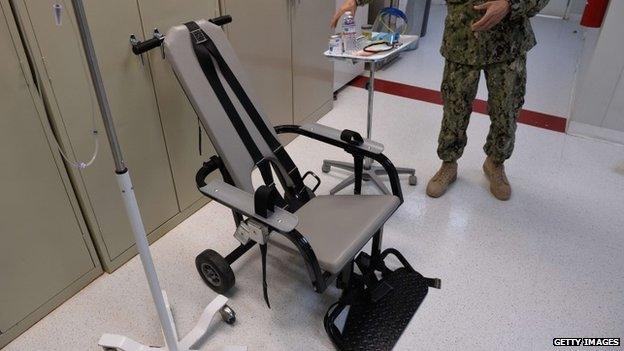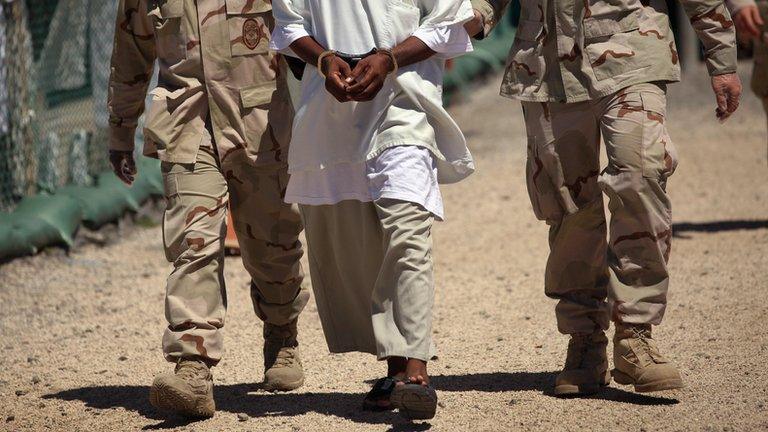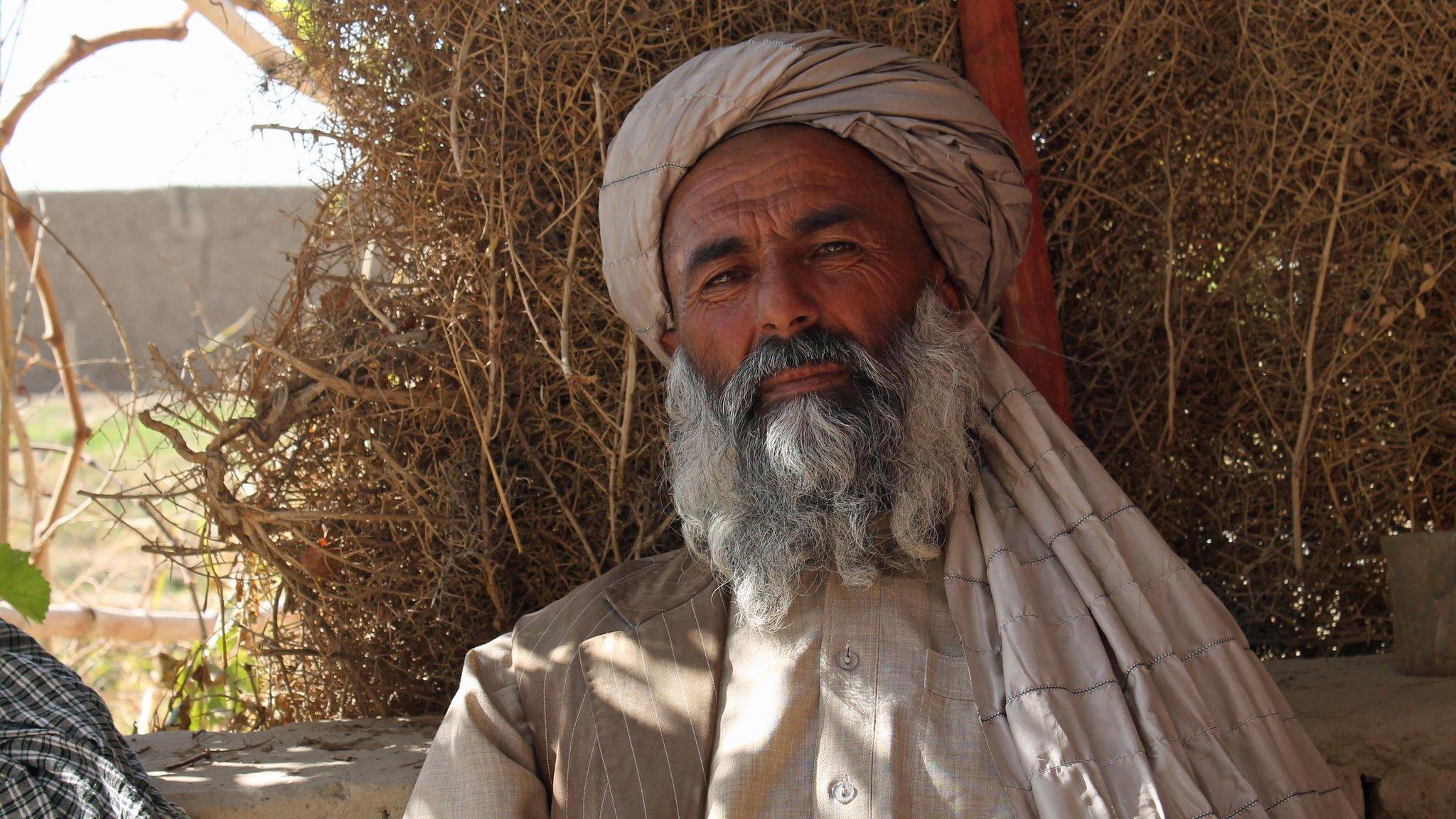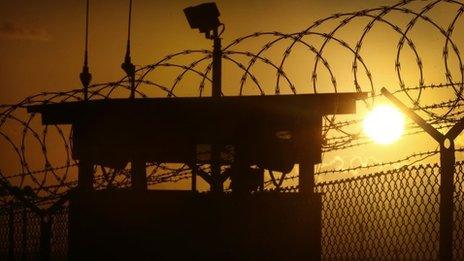Judge lifts ban on Guantanamo inmate force-feeding
- Published

The prisoners are reportedly removed from their cells by force and fed through a tube in the nose
A US judge has lifted a temporary order preventing military officials from force-feeding a prisoner on hunger strike at Guantanamo Bay.
In the order published late on Thursday, federal Judge Gladys Kessler said there was a "real probability" Abu Wa'el Dhiab would die if not fed.
Mr Dhiab's lawyers say the force-feeding - through a tube in the nose - is illegal and abusive.
Prisoners at the US facility in Cuba began a mass hunger strike last year.
At its height, more than 100 of the 154 detainees inside the military prison were refusing food. The military has been force-feeding those who are striking.
'Pain and suffering'
Lawyers for Mr Dhiab are seeking an order from the judge to force the military to change their practices, including forcibly removing prisoners from their cells to be fed.
Judge Kessler said Mr Dhiab would consent to being fed in hospital if he could be spared the pain of having the tube inserted into his nose for the procedure.
In the order, Judge Kessler said the defence department's refusal to compromise on the procedures for the feeding had left her with a impossible choice - either continue her ban and risk Mr Dhiab's death or allow the force feeding with the possibility of "great pain and suffering".
Earlier, Judge Kessler ordered the US to produce 34 video recordings of Mr Dhiab being removed from his cell and force-fed.
In her order lifting the ban on force-feeding, she said she would decide the case on the merits quickly.
"As the court has asserted, this is a deeply complex issue," Pentagon spokesman Lt Col Todd Breasseale told the Associated Press news agency in response to the order.
"The department has long held that we shall not allow the detainees in our charge to commit suicide and it's particularly worth noting here that we only apply enteral feeding in order to preserve life."
- Published19 June 2013

- Published19 June 2013

- Published25 February 2014

- Published20 March 2014
